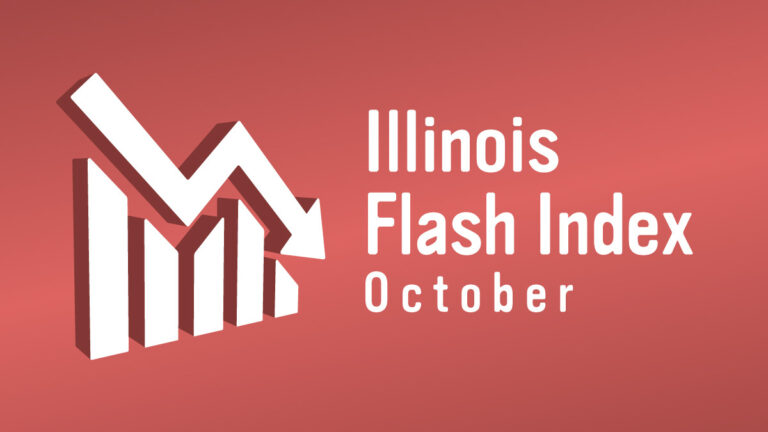URBANA – Illinois’ economic growth slowed down in October, according to the University of Illinois Flash Index.
The Flash Index reading for October is 105.4, down from the September reading of 106.0. This puts the Flash Index’s measure of the Illinois economy at its lowest point since six-tenths of a point from September, sending the economic indicator to its lowest point since the May reading of 105.3.
Any reading above 100 on the Flash Index indicates economic growth, so the state’s economy is still growing, only at a slower pace.
University of Illinois economist Fred Giertz says the Illinois economy is likely feeling the impact of the COVID-19 Delta variant, and U-S supply chain bottlenecks.
“It’s a serious situation, where we’re still having recovery, still having growth, but not quite as rapid as previous,” said Giertz.
Giertz, who compiles the Flash Index for the university’s Institute of Government and Public Affairs, says the drop in the state’s rate of economic growth mirrors what’s happening with the national economy, but that the state’s economy lags behind the nation’s economy.
“The Illinois unemployment rate is about two percentage points above the national,” said Giertz. “Both of them are falling, but Illinois hasn’t fallen as rapidly, and has a long ways to go. So the national economy is slowing, Illinois probably is slowing even more, has more to do to catch up.”
The Illinois unemployment rate fell from 7.0% in August to 6.8% in September, according to preliminary data released by the Illinois Department of Employment Security. Nationally, the unemployment rate fell from 5.4% to 4.8% for the same period, according to the U.S. Bureau of Labor Statistics.
The Flash Index is based on Illinois tax receipts. Giertz says in October, the state’s corporate tax revenues were up, income taxes were down, and sales taxes were up, but only slightly.

